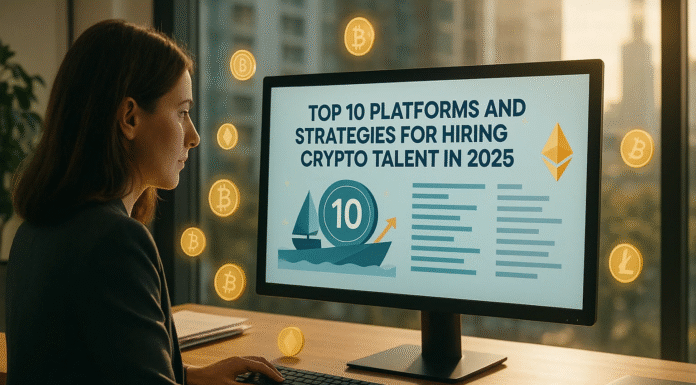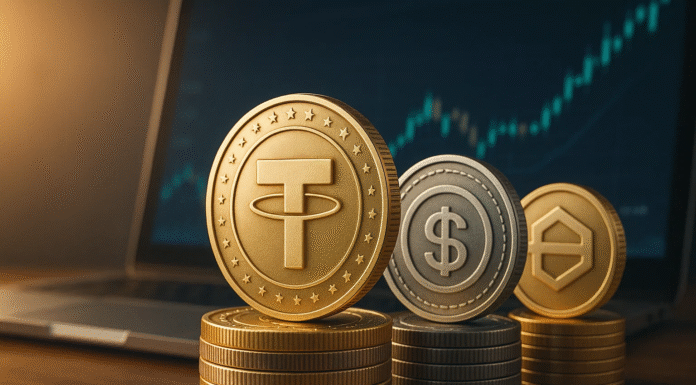The rise of Web3, DeFi, and NFT ecosystems has created unprecedented demand for specialized crypto talent. This guide provides a quantitative approach to identifying, hiring, and retaining blockchain experts, security auditors, and developers. By analyzing compensation trends, geographic arbitrage, token-based incentives, and compliance frameworks, it equips organizations with strategies to compete for top-tier professionals in a highly competitive market. With insights from platforms such as 9cv9 Job Portal and 9cv9 Recruitment Agency, businesses can accelerate hiring cycles, reduce risk, and secure the expertise needed to scale decentralized projects effectively.
The cost of hiring crypto talent extends beyond base salaries, encompassing specialization premiums, token-based incentives, and regulatory compliance. This blog provides an in-depth analysis of salary trends, market insights, and Total Cost of Ownership (TCO) for technical, executive, and operational roles in the Web3 ecosystem. Learn how geographic disparities, market cycles, and strategic workforce planning influence hiring decisions, retention strategies, and financial efficiency for organizations competing in the competitive blockchain and cryptocurrency sector.
A Zero-Knowledge (ZK) Engineer is a specialized cryptography expert who designs and implements zero-knowledge proofs, enabling secure, private, and verifiable digital systems. This blog explores their roles, essential skills, real-world applications in blockchain, DeFi, and data privacy, and the growing career opportunities in this cutting-edge field.
This comprehensive report explores the top 10 platforms and proven strategies for hiring crypto talent in 2025. It provides actionable insights on salary benchmarks, strategic remote hiring, community-driven pipelines, token-based incentives, and specialized recruitment channels to help companies attract and retain skilled blockchain, DeFi, and Web3 professionals in a competitive market.
Stablecoins are digital assets designed to maintain a stable value, bridging the gap between volatile cryptocurrencies and traditional finance. This guide explores their types, how they work, advantages, risks, regulatory landscape, and future outlook, highlighting their role in payments, DeFi, and global financial inclusion.
Explore the top 10 countries where startups and enterprises can hire skilled crypto talent at the most affordable rates in 2025. This guide analyzes salaries, cost of living, regulatory environments, and operational factors, helping businesses make informed, strategic hiring decisions for their Web3 teams.
In 2025, hiring crypto talent demands a strategic, data-driven approach. This guide explores sourcing specialized roles, vetting for Web3 fluency, designing competitive compensation, and implementing retention strategies to help startups and enterprises secure and nurture top-tier blockchain professionals in a highly competitive market.
Non-Fungible Tokens (NFTs) are unique digital assets that represent ownership of art, music, collectibles, virtual real estate, and more. Powered by blockchain technology, NFTs ensure verifiable authenticity, scarcity, and secure transactions. This guide explores how NFTs work, their benefits, use cases, and the technology shaping the future of digital ownership.
Cryptocurrencies are digital assets powered by blockchain technology, enabling secure, decentralized transactions. This guide explains how they work, explores different types of coins and tokens, highlights benefits and risks, and examines emerging trends shaping the future of digital finance.
Consensus mechanisms are the foundation of blockchain technology, enabling decentralized networks to validate transactions, maintain security, and achieve trust without central authority. This comprehensive guide explains their core principles, operational processes, key types, real-world applications, and emerging innovations shaping the future of distributed systems.








































![Writing A Good CV [6 Tips To Improve Your CV] 6 Tips To Improve Your CV](https://blog.9cv9.com/wp-content/uploads/2020/06/2020-06-02-2-100x70.png)


